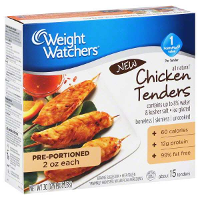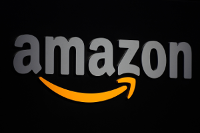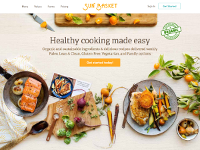- Details
- Written by Kelly Seal
- Hits: 1659
U.S. consumers are feeling generous this holiday season. According to a recent report by Associated Press, retail sales in November jumped .8 percent from the previous month, and October sales were up .5 percent.
Online shopping was a huge factor in the increase in sales, with a 2.5% increase in November.
This bodes well for retailers this holiday season, but new shopping trends have been developing in the apparel industry in the last few years, which pose a threat to companies who have invested in building brand loyalty. Customers are less focused on brands than they used to be, and more interested not only in better prices but in high-quality items.
- Details
- Written by Kelly Seal
- Hits: 2509
At the beginning of holiday season, Weight Watchers announced several new foods that it has added to its “free points” list, meaning participants can eat all that they want without having to track them in their individual diet programs.
The new approved foods include chicken, corn, yogurt, and fish among 200 new foods added to the zero points list. While many dieters are used to eating foods like celery or apples without adding any points, these new foods are a windfall of sorts to dieters who might feel restricted by Weight Watchers point system.
The move is a big step for the company towards revamping their system through the new WW Freestyle program, which gives participants much more freedom in making food choices - with the ultimate goal being a healthy lifestyle. Weight Watchers is also trying to retain and attract new customers with a more open approach to varying diets and food preferences.
The point system is the hallmark of Weight Watchers, and has been in place since the company’s inception. The objective of implementing a point system was to give customers the freedom to eat whatever they wanted, but with accountability. In other words, you can have a piece of cake, but understand that means you can’t have a hamburger for dinner because that would add up to too many points.
- Details
- Written by Kelly Seal
- Hits: 2038
Blue Apron, a leader in the meal kit services industry, recently announced that its founder Matt Salzberg will be stepping down as CEO, and CFO Brad Dickerson will take his place at the helm. The company is searching for a new CFO to replace Dickerson.
Blue Apron has had a tumultuous year. The company has had tremendous growth in the five short years it’s been in business, bringing in almost 211 million dollars in the last reported quarter. Despite its growth and revenue, industry changes have derailed its success.
Before launching its IPO this past June, Amazon announced its acquisition of popular grocery chain Whole Foods, and began offering its own meal kits for a lower price. Amazon’s distribution network coupled with its new acquisition disrupted the meal kit services industry and worried potential investors, impacting Blue Apron’s IPO. Blue Apron was originally going to offer its stock for between $15-$17 per share, but dropped it down to $10 in light of investor concerns.
- Details
- Written by Kelly Seal
- Hits: 2256
Companies like 23andMe and Ancestry have grown wildly in the past few years, thanks to the popularity of at-home genetic testing. Now, these companies are turning to Amazon to reach a wider audience.
Ancestry was the first to offer its genetic testing kits through Amazon’s marketplace, starting in 2015. Back then, the company was selling 400-500 sets per day via Amazon, which grew to 1,300 kits per day in 2016, according to an article on CNBC’s website. This made up as much as 10% of overall sales for Ancestry, according to the article. Ancestry hasn’t given numbers for sales through Amazon for 2017.
Customers opt for at-home genetic testing kits because they are an easy and inexpensive way to gather information on ancestral heritage. Customers simply provide a DNA sample, usually through a saliva sample, and mail it back to the testing company and wait a few weeks to see the results. Some companies like 23andMe also offer the option of health reports, so you can see if you have a higher risk of certain diseases or conditions.
- Details
- Written by Kelly Seal
- Hits: 1762
Stitch Fix, a popular online clothing style service, made its stock market debut Friday, November 17th. Shares for the company jumped 14% during the day, although the company sold fewer shares than expected at a lower price, according to Associated Press.
In its IPO, Stitch Fix sold 8 million shares at $15 each, though previously the company had said it wanted to sell 10 million shares for between $18 and $20 each. The shares rose as high as $18.53 in the late morning, but fell to $15.15 as the market closed, just a fraction above its opening price.
This is the first tech IPO led by a woman this year, according to an article in The Washington Post.
- Details
- Written by Kelly Seal
- Hits: 1946
Have you wanted to try a meal kit service, but find that your food preferences don’t make it feasible? Meal kit service Sun Basket is catering to pickier eaters with dietary restrictions, but how do they compare to the popular Hello Fresh and Blue Apron services?
Sun Basket offers an array of specialized meal kits, including Paleo, Gluten Free, Vegetarian and “Family” (kid-friendly) options. The company also advertises using organic and sustainable ingredients, another added value that sets them apart. Customers can choose options such as soy-free or spicy, if they have specific preferences.
As someone who was diagnosed with gluten intolerance, their menu offerings intrigued me, because they make it so easy to choose what’s right for me. Plus, you can go outside of your preferred meal plan when choosing your recipes each week, so you aren’t tied to Paleo recipes if you feel like branching out to vegetarian, for instance.


















